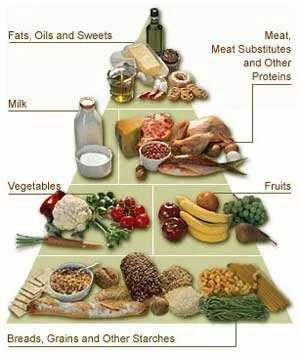
The truth is that we need to eat in order to live. But, unfortunately, there is also bitter truth saying that what we eat often spoils our living. Isn’t it food that may cause upset stomach, diarrhea, heartburn or even lead to more serious health consequences, such as overweight and obesity? Moreover, this truth is getting even more bitter for people with diabetes, either type 1 or type 2, because foods and especially those containing carbohydrates are the main sources of blood sugar, dealing with which is the key problem in diabetes.
By some quirk of fate, carbohydrates, which are the major sources of energy for humans, are also the primary contributors to the elevated level of blood sugar. The point is that carbohydrates from usual food products are broken down into glucose during digestion. Glucose is absorbed into the bloodstream, where it requires insulin to be delivered into all body cells and used for energy. However, in people with diabetes there is either no insulin at all, or there is a lack of this hormone – so, glucose remains in the bloodstream causing serious problems for multiple organs and systems of the human organism. This is how diabetes occurs in short. Consequently, people with diabetes seem to be faced with a dilemma: to eat or not to eat carbohydrates?
As the matter of fact the answer to that question is somewhere between two extremes – on the golden mean, to which every diabetes patient should aim. People, living with diabetes, cannot and should not give up eating foods, which contain carbohydrates, - but they definitely should make their eating more deliberate.
The first fact to underline is that not all carbohydrates influence blood sugar in the same way. Some of them, called simple carbohydrates, require very little time to be digested, and thus they rapidly increase blood glucose level. The examples of food products which contain simple carbohydrates are table sugar, fruit and fruit juices, milk and yoghurt, honey, etc.
Here it is important not to stamp those foods as the main and only culprits of all health disorders. That won’t be fair, because along with simple carbohydrates, fruits, for example, contain many important vitamins and minerals, milk products contain bacteria beneficial for the digestive tract, and table sugar can be the first-hand option to treat hypoglycemia, which may be sometimes caused by insulin or anti-diabetes pills.
On the other hand, person with diabetes should be aware of rapid and significant rise in blood sugar soon after consuming products, containing simple carbohydrates. So, before taking some of them in the amount, which should definitely be limited in accordance with one’s individual condition, the adequate amount of insulin should be provided in the bloodstream – either by taking insulin or the prescribed medication, which increases the amount of insulin in blood.
Along with simple carbohydrates, there are also complex carbohydrates. The examples are all kinds of vegetables, grains, breads, cereals, pasta, and legumes. Complex carbohydrates, unlike their simple congeners, require more time to enter the bloodstream as glucose. That is why they provide more steady and prolonged rise of blood sugar. The dietitians usually recommend people with diabetes prefer slow-acting carbohydrates to simple ones. Besides, products with complex carbohydrates usually contain many other valuable nutrients, including fiber.

In order to keep under control his blood sugar level, one should carefully observe the amount of carbohydrates, consumed with every meal. In fact, it is all about balancing insulin in the body with the carbohydrates one eats. To make understanding of diabetes diet recommendations more visual American Diabetes Association provides Food Pyramid, which shows graphically what foods should be consumed and in what amounts.
So, it looks like the question to eat or not to eat carbohydrates when one has diabetes is settled in favor of carbohydrates; or to be more precise, in favor of their deliberate consumption, when choosing the right type of carbohydrates and their amount matters most for the successful control of blood sugar.
| Tip for you : Sign-in with Your OpenID and post faster, easier and with easy access to all your past posts. | |
|
Your Nick: |













